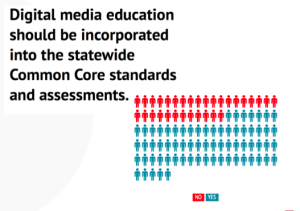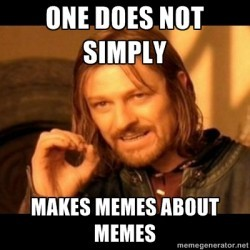Binary split among even tech-savvy Rhode Islanders about how much technology should be in schools
Initial results of Digital City Rhode Island’s Education and Technology poll were released at the Rhode Island Department of Education’s Innovation Powered by Technology Conference on Saturday, Oct. 25.
The conference session, titled “RI’s Digital Education Aptitude: Understanding Rhode Islanders’ Concept of 21st Century Education Poll Results & Panel Discussion,” was highly interactive with principals, school committee members, charter school IT department heads, policy and RIDE administrative leaders participating in an interactive session, sharing ideas and reflections on insights from panelists: Rhode Island Chief Digital Officer Thom Guertin, Broadband Rhode Island Program Director Stuart Freiman, and Dr. Renee Hobbes Founding Director of Harrington School of Communication and Media.
Designated Editor’s own Suzanne McDonald moderated the panel and engaged attendees. The results of the poll and responses of education professionals were surprising.
The 12 question poll touched on such topics as social media, access to new media, and in-school filtering programs. Here are the results.
1. Students at all ages should have access, both in- and out-of-school, to digital / new media like websites, e-books, mobile, apps, games, and social media.
The majority of those surveyed agreed or strongly agreed that students of all ages should have access to digital/new media. But, many felt that younger children may not need as much access to social media and game sites. One attendee stated, “I don’t think young kids need the access. They’ll be inundated soon enough. Let them be carefree through elementary school. Computer access yes but social media not until high school.”
2. Using, analyzing, and creating digital media will not only give students skills needed for their future but will help them identify misinformation.
Notable comments included: “It’s important to not conflate ‘digital literacy’ with ‘information literacy.’ Exposure and creation of digital media does not teach information literacy, any more than using, analyzing, and creating campaign flyers helps with skill-building or ability to identify misinformation. It’s the information literacy skill of knowing to verify that does this.”
“Technology is the factory or our time. Train them for what is useful and maybe we can actually stay a world power in the future generations.”
3. Educators need more opportunities to develop their own knowledge and skills to support students’ creating and problem-solving via digital media.
This was a hot topic during Saturday’s presentation. Many voiced their opinions. Here are two sides of the argument:
- “Teachers need to be ahead of the curve and use the time NOW to learn cloud based technology in preparation for the 1:1 school environment.”
-
“I don’t think that most educators are afforded paid time to develop new skills given the amount of testing, changing standards, changing processes, etc. Technology mentoring will be required for both educators and children and cannot be simply added as another accessory duty to an educators workload. Additional personnel will be required.”
4. In-school filtering policies should NOT block online resources like Google.
Of those surveyed, 75% felt that Google should NOT be blocked in schools. One poll-taker argued that, “There are settings on Google that are sufficient and do not require advanced filters.”
Another felt it was limiting students access to important materials and said ,” Just as in-school library catalogs shouldn’t filter out library materials [Google should not be blocked].”
One poll-taker suggested a possible solution, “Educators should have the ability to unblock websites, because no filtering software is perfect.”
5. Public libraries should regularly offer digital skills-building programs, such as how to use LinkedIn, to all citizens.
Over half of poll takers felt that the library was the perfect place for such skills-building programs. Many felt that such programs would be a great way for libraries to stay relevant. An anonymous poll-taker commented: “Adult learners need a source of information, education, and skills. Public libraries are logical community gathering places for bridging the digital divide.”
6. K -12 school policies on using cellphones and social media for learning are needed.
The majority of those polled agreed that school policies for cell phone use and social media for learning are necessary. However, there were also those who strongly opposed this idea, viewing social media and cell phones as unnecessary distraction. “K-12 should NOT be utilizing cell phones. While theoretically a positive, this will be far more of a distraction. There are enough issues with cell phones and social media in the schools now.”
7. Student project work and problem-solving should utilize a combination of language, images, sound, and digital media.
More than half of those polled agreed but this question also brought up an important point. “Not every family can be in position to do so. Not every family has access to internet/devices or a library,” said one poll-taker.
8. Digital media education should be incorporated into the statewide Common Core standards and assessments.
As the below picture shows, the majority of those surveyed agreed that digital media education should be incorporated into Rhode Island’s Common Core standards and assessments. However, there were those who felt common core should remain based on core studies. Digital media information can be found right here to educate yourself and your kid on technology.
“No, kids will learn this anyway, one way or another. Get Common Core to support reading, writing, reasoning, math,” said an anonymous poll taker.
9. K-12 students should learn coding and software-development skills.
Of those surveyed, 60% agreed that students K-12 should learn coding and software development. Many noted that it should be offered strictly as a high school elective.
10. Students should be able to take for-credit online courses to supplement their education.
The larger portion of those polled felt that online courses should be offered. There were, however, those that vehemently disagreed. Reasons for this included:
- Online classes are no substitute for a classroom experience.
- In-school classes are essential for socialization and growth.
- Teacher student interaction is vital in early education.
11. A blend of face-to-face instruction and online learning offers many advantages to students in grades K- 12.
The general agreement was that a blend of these two media would be best for students. One poll-taker pointed out that online learning could help students with different learning styles.
“It especially offers help to students with alternative learning styles. There’s lots of research on flipped classrooms — and online materials can be a robust way to build a flipped classroom. Watching a lecture, with the ability to, say, pause the lecture to take notes, is going to be much more effective for slow note-takers than a face-to-face lecture, for example,” said one poll taker.
Do you agree with these results? Share your opinion at bit.ly/RI2014digitaledpoll
[social_share style=”bar” align=”horizontal” heading_align=”inline” text=”HHow much technology should be in schools: social media, online courses, coding classes, cellphones?” heading=”How much technology should be in schools: social media, online courses, coding, cellphones?” facebook=”1″ twitter=”1″ google_plus=”1″ linkedin=”1″ pinterest=”1″ /]




